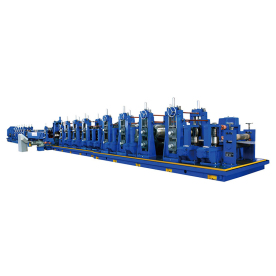[All-in-one solid state HF Equipment]Exploring the Advantages of All-in-One Solid State HF Equipment for Amateur Radio Enthusiasts and Professionals Alike
In the realm of amateur radio and professional communications, the evolution of equipment has been nothing short of revolutionary. Among the most significant advancements in recent years is the introduction of all-in-one solid state HF (High Frequency) equipment. This technology not only enhances communication capabilities but also offers convenience and increased efficiency for operators at all levels. Whether you are an established radio veteran or an enthusiastic newcomer to the hobby, the benefits of embracing all-in-one solid state HF equipment are hard to ignore.

Exploring the Advantages of All-in-One Solid State HF Equipment for Amateur Radio Enthusiasts and Professionals Alike
The Rise of Solid State Technology
Solid state technology refers to devices built from semiconductor materials that control the flow of electricity. Unlike traditional tube-based HF transmitters, which rely on vacuum tubes to amplify signals, solid state equipment uses transistors and integrated circuits. This transition has brought significant advantages, such as reduced size and weight, increased reliability, and greater power efficiency. The compact nature of solid state devices allows all-in-one units to integrate multiple functions into a single chassis without compromising performance.
An All-in-One Solution
The term “all-in-one” in the context of HF equipment highlights the ability to combine various functionalities into one system. Traditional setups often require separate components for transmission, reception, and frequency control, leading to cluttered workspaces and complex configurations. In contrast, an all-in-one solid state HF rig typically incorporates a transceiver, antenna tuner, audio processing, and even digital modes such as FT8 and PSK31, all within a single unit. This integration simplifies the user experience, making it accessible for beginners while still meeting the needs of seasoned aficionados.

Exploring the Advantages of All-in-One Solid State HF Equipment for Amateur Radio Enthusiasts and Professionals Alike
Advantages of All-in-One Solid State HF Equipment
1. **Ease of Use**: With fewer components to manage, amateur radio enthusiasts can set up their stations more quickly and efficiently. The streamlined interface often includes touch screens, intuitive menus, and presets tailored for various bands, making it user-friendly for operators of all skill levels.
2. **Space-Saving Design**: In an era where space is often at a premium, the compact design of all-in-one solutions is particularly appealing. These units can easily fit into small operating environments, whether a dedicated ham shack or a mobile setup in a vehicle.
3. **Lower Power Consumption**: Solid state technology typically consumes less electricity compared to traditional tube-based equipment. This not only translates to lower operating costs but also extends the life of the equipment and reduces heat output, which is a common concern in radio operations.
4. **Enhanced Reliability**: Solid state components are generally more robust than vacuum tubes, resulting in less maintenance and failure rates. This increased reliability is crucial for emergency communication situations where uptime is essential.
5. **Integrated Digital Modes**: As digital communication becomes more prevalent, having built-in capabilities for modes such as FT8, RTTY, and others is advantageous. Users can connect directly to their computers or tablets, utilizing software to enhance their operating experience without the need for additional hardware.
Considerations When Choosing Equipment
While the benefits of all-in-one solid state HF equipment are multifaceted, it is essential to consider a few factors before making a purchase. Users should evaluate their specific needs, including operating frequency ranges, modes of communication, and potential future expansions. Quality of the audio, user interface responsiveness, and available support and documentation are also crucial components to assess.
Additionally, understanding the limitations of an all-in-one unit is important. Some advanced operators may find that dedicated components offer superior performance in specific areas. Thus, depending on individual goals and preferences, hybrid setups that combine both all-in-one units with standalone accessories may offer an optimal solution.

Exploring the Advantages of All-in-One Solid State HF Equipment for Amateur Radio Enthusiasts and Professionals Alike
Conclusion
All-in-one solid state HF equipment represents a significant step forward in amateur radio technology. With convenience, compactness, and efficiency at its core, this equipment is suitable for both beginners eager to dive into the world of radio communication and veterans looking for modern solutions to enhance their operations. As technology continues to evolve, enthusiasts can expect further improvements and innovations in solid state HF systems, ensuring that the amateur radio hobby remains vibrant and accessible for generations to come. For those seeking to elevate their communication experience, investing in all-in-one solid state HF equipment is certainly a decision worth considering.Uncoiler
